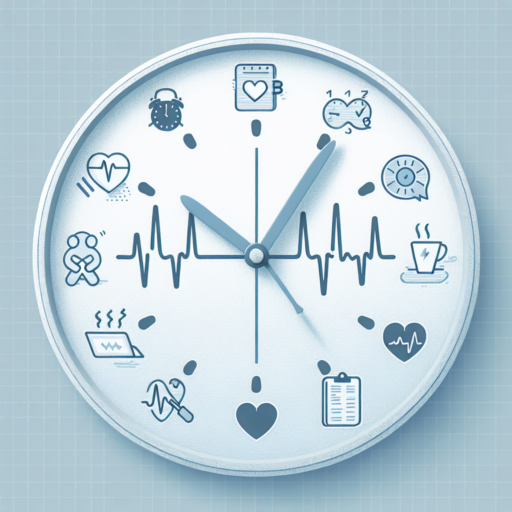What is a good average HRV overnight?
Understanding Heart Rate Variability (HRV) and its significance is the first step in recognizing what can be considered a good average HRV overnight. HRV refers to the variation in time intervals between heartbeats, and it is commonly measured while you sleep. This metric is crucial because it reflects the body’s autonomic nervous system function, providing insights into stress levels, recovery status, and overall cardiovascular health.
Experts suggest that a higher HRV indicates better health, fitness, and readiness to perform. While there is no one-size-fits-all number, generally, an overnight HRV in the range of 50-100 milliseconds (ms) is seen as good for most adults. However, it’s important to note that HRV is highly individualized. Factors such as age, gender, fitness level, and lifestyle can significantly impact what is considered a ‘good’ average for one person versus another.
To get a clearer picture of your HRV and what it means for you, it’s recommended to track it consistently over time. Tools and wearable devices can make this easier, allowing you to monitor daily changes and discern personal trends. By understanding your own baseline and how different factors affect your HRV, you can better gauge what a good average HRV overnight looks like for you personally.
Why is my overnight HRV so low?
Many factors can contribute to a low overnight Heart Rate Variability (HRV), reflecting less variability between heartbeats. It’s a crucial indicator of your autonomic nervous system’s balance and overall health. Understanding the underlying causes can help in addressing this concern.
Poor Sleep Quality
One of the predominant factors leading to a reduced HRV is poor sleep quality. When your body doesn’t get enough restorative sleep, it impacts the autonomic nervous system, thus affecting the HRV. Factors such as irregular sleep schedules, an uncomfortable sleep environment, and the use of electronic devices before bedtime can contribute to this issue.
High Stress Levels
Stress plays a significant role in altering HRV levels. During periods of high stress, the body’s fight or flight response is activated more frequently, leading to lower variability in heart rate. Practices such as mindfulness, meditation, and stress management techniques can help mitigate this impact and improve HRV over time.
Lifestyle Factors
Lifestyle choices also have a substantial impact on overnight HRV. Factors include lack of physical activity, poor diet, and the consumption of alcohol or caffeine before bedtime. Ensuring a balanced diet, regular exercise, and minimizing stimulant intake can foster a better HRV.
Should HRV be measured at night?
Certainly, measuring Heart Rate Variability (HRV) at night can offer numerous advantages for individuals looking to improve their health and well-being.
The Significance of Night-Time Measurement
Firstly, night is typically a period of rest and recovery, making it an ideal time to assess HRV. During sleep, the influence of external stressors is minimized, providing a clearer picture of the body’s internal state. This makes nighttime measurements particularly valuable for those seeking to understand their autonomic nervous system‘s function without the noise of daily activities.
Moreover, measuring HRV at night aligns with the natural circadian rhythms, allowing for consistent, daily comparisons. By establishing a routine measurement during sleep, individuals can track their HRV trends over time, helping to identify any deviations that may indicate issues such as stress, overtraining, or potential health concerns.
In addition, nighttime HRV measurement can directly contribute to better sleep quality by highlighting the autonomic nervous system’s balance. Understanding this balance can lead to targeted interventions to improve sleep, such as adjusting bedtime routines, optimizing sleep environment, or modifying daytime activities that might impact nightly HRV scores.
No se han encontrado productos.
How can I improve my HRV overnight?
Improving your Heart Rate Variability (HRV) is crucial for monitoring your fitness levels and overall well-being. While many strategies require long-term commitment, there are actions you can take to potentially see improvements in your HRV as soon as overnight.
Adopt a Relaxation Routine Before Bed
One of the most effective methods to enhance your HRV overnight is by engaging in relaxation techniques before bedtime. Practices such as deep breathing, meditation, or using guided imagery can significantly lower your stress levels, thus potentially leading to an improved HRV by morning. Incorporating a consistent pre-sleep routine that emphasizes relaxation not only prepares your body for rest but may also optimize your heart’s variability.
Optimize Your Sleeping Environment
Your sleeping environment plays a pivotal role in how well you rest and, subsequently, in your HRV score. Ensuring that your bedroom is quiet, dark, and at a comfortable temperature can improve the quality of your sleep. Additionally, investing in a comfortable mattress and pillows tailored to your sleeping preferences can make a significant difference. Studies suggest that an optimized sleeping environment supports more restorative sleep, which is directly linked to better HRV readings.
Improving HRV is a long-term journey, but by focusing on relaxation and optimizing your sleeping conditions, you may see positive changes as quickly as overnight. It’s essential to listen to your body and adjust your strategies accordingly to find what works best for you.




